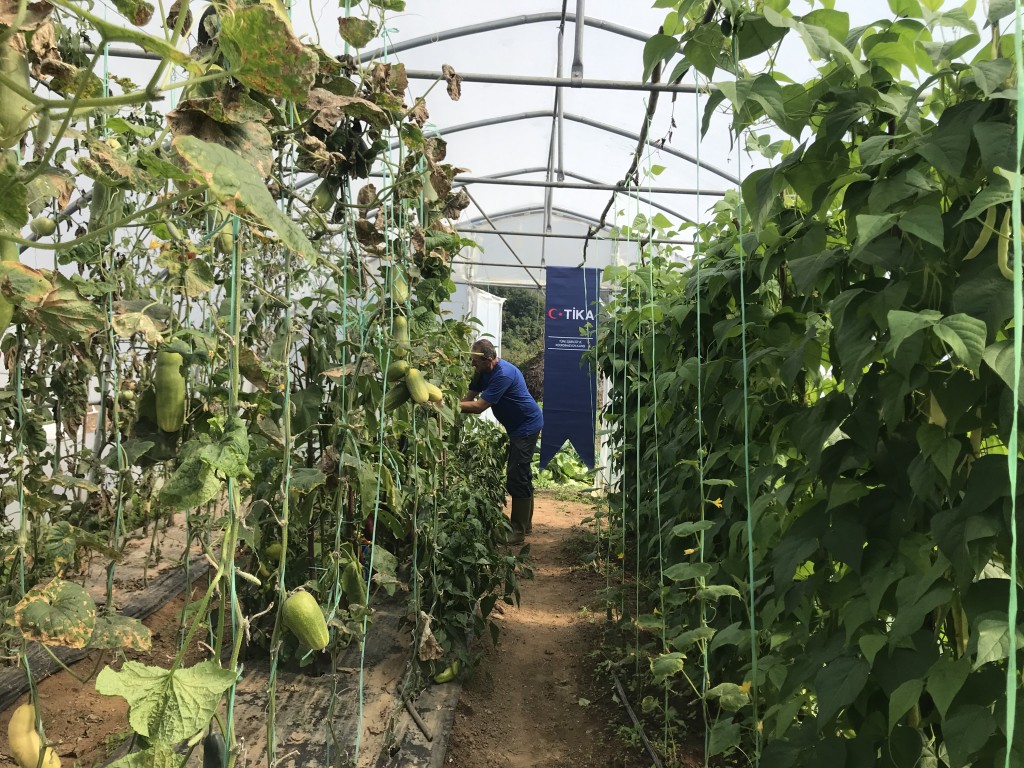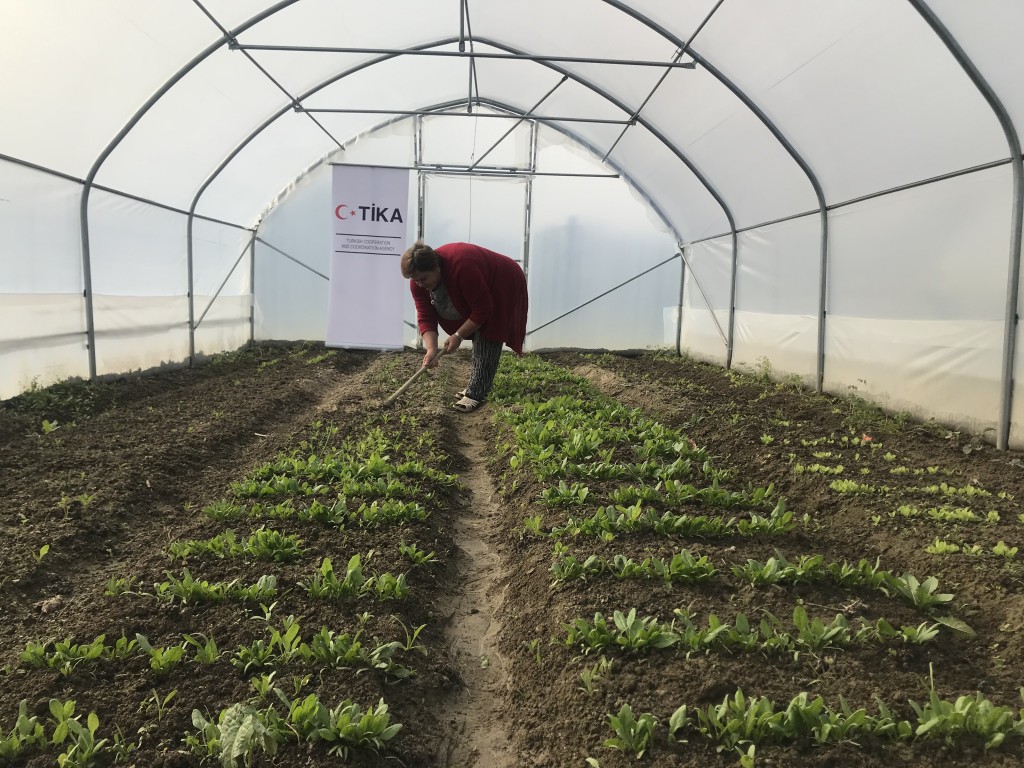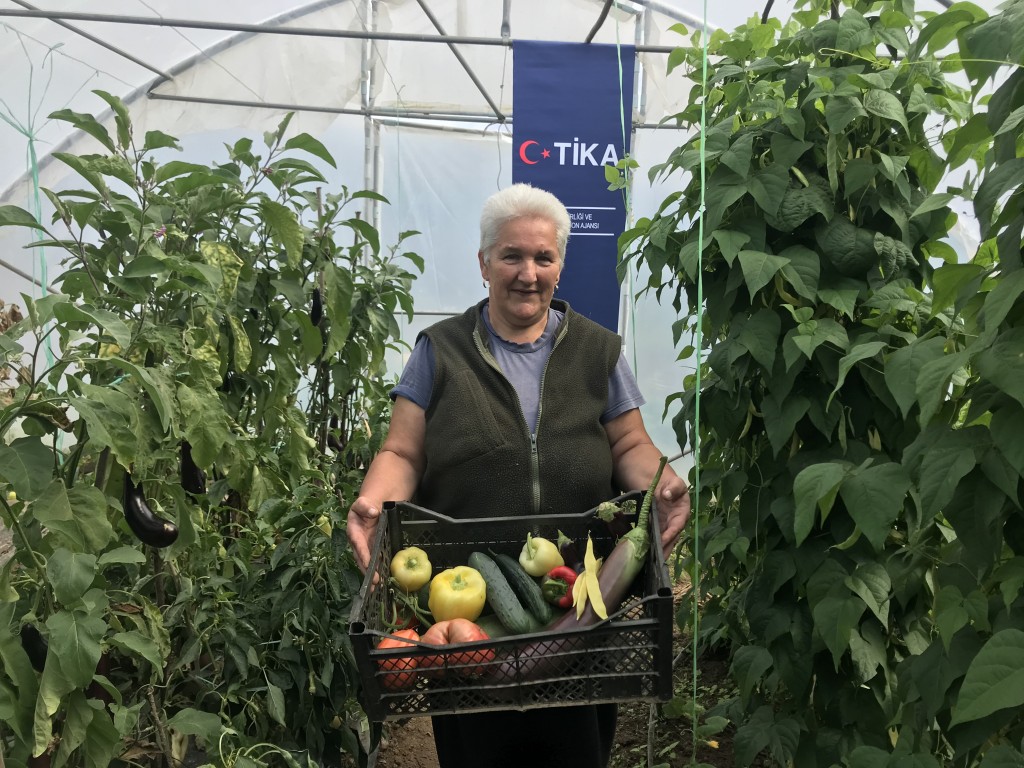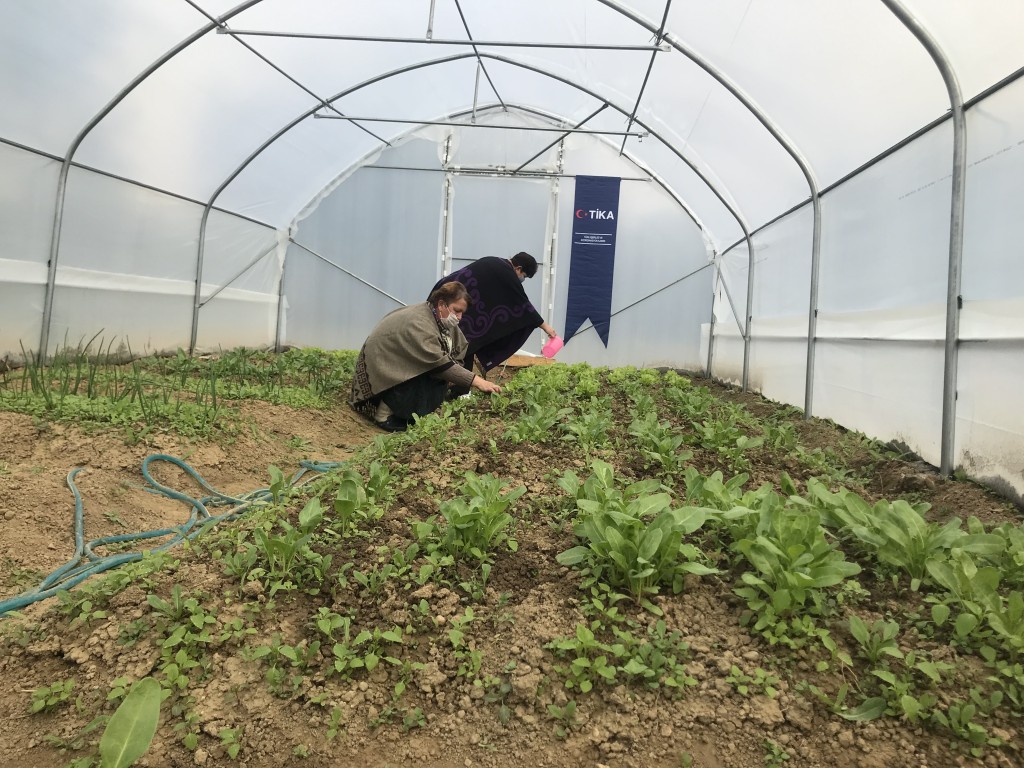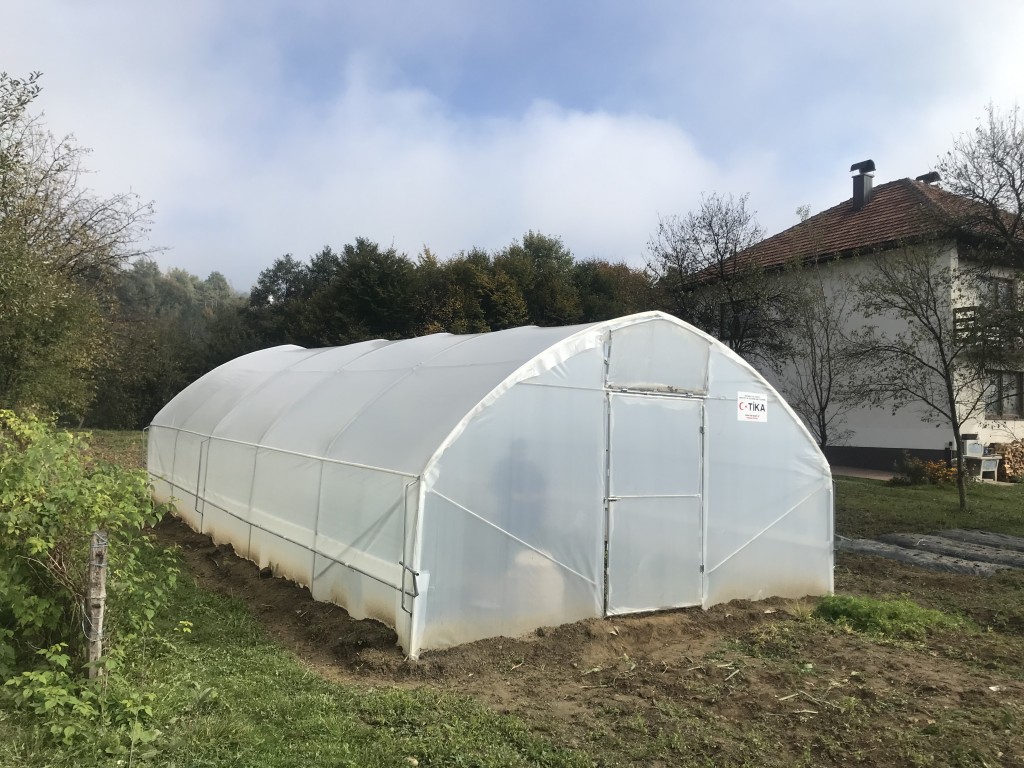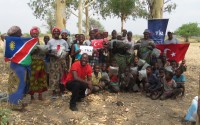News
17 November 2020Bosnian Women Contribute to Agricultural Economics with the Help of TİKA
Launched by Turkish Cooperation and Coordination Agency (TİKA) in the Balkans and Eastern European countries, the “Balkans and Eastern European Countries Food and Life Safety Support Programs” make women a major player in production.
As part of the “Greenhouse Production Development Project,” which was implemented in Bosnia and Herzegovina as a subcomponent of Programs that support women’s empowerment, their contribution to the family economy, and their economic independence in rural areas, Greenhouses and Irrigation Systems were built for 60 Family-Owned Bosniak Businesses to help them take their first steps towards agricultural production.
Approximately 30% of the workforce is employed in the agricultural sector in Bosnia and Herzegovina. This project promotes greenhouse production in the agricultural sector. It aims to diversify sustainable agricultural support projects, extend them to different regions, and support families in need. In 2020, TİKA built greenhouses and irrigation systems for a total of 60 families in the cities of Bihać, Vitez, Bugojno, Goražde, Bratunac, Livno, Kostajnica, and Prijedor in Bosnia and Herzegovina in order to empower women living in rural areas and increase their quality of life. These greenhouses allowed women living in rural areas to grow crops throughout the year and earn their own living through the Greenhouse Production Model.
Semra Ribo, a Bosniak Mother, Said, “I am Excited to Contribute to the Country’s Economy”
Thanks to this project, families will both meet their own needs and generate revenue in their family businesses by establishing a supply system from production to the market.
Tahiba Ahmiç, a Bosniak mother who took part in the project implemented in the village of Ahmići in Vitez, said, “On behalf of the women in our village, I would like to thank TİKA for its support. Thanks to this project, which enables us to contribute to production, local women regained their self-confidence. The project also had a major impact on our economic strengthening.”
Semra Ribo, another Bosniak woman who took part in the project, said, “It is great to be able to stand on our two feet, earn a living, grow crops, and have a regular income as a result. I would like to thank Turkey sincerely for giving us this opportunity. I am excited to know that my production activities, albeit limited, will contribute to the country’s economy.”
Strong Agricultural Welfare against the COVID-19 Pandemic in Bosnia and Herzegovina
TİKA continues to implement various agricultural and animal husbandry projects and carry out income-generating activities in order to improve the welfare of people living in rural areas in eastern Bosnia and Herzegovina. To promote agricultural development, prevent emigration, ensure the economic prosperity and empowerment of farmers and producers, and diversify agricultural production in the Balkans, TİKA has so far successfully implemented projects such as “Increasing the Quality of Life of Retired Urban Population and People with Disabilities through Hydroponic Vertical Farming Practices in Bosnia and Herzegovina,” “Alleviating Poverty and Empowering Women in Rural Areas through Organic Walnut Production,” “Increasing Women’s Participation in Development by Promoting Greenhouse Production,” “Alleviating Rural Poverty by Genotyping Sheep and Goats and Increasing Their Population through Family Farming in Bosnia and Herzegovina,” and “Production and Marketing of Safe Bee Products in Rural Areas.”
It is known that total agricultural production decreased by 7.3% in 2019 compared to 2018 in Bosnia and Herzegovina, which is among the most vulnerable countries to the COVID-19 pandemic and where nearly 100,000 people have become unemployed or unable to work for various reasons by the end of March 2020.
In this context, in the municipalities of Goražde, Pale-Prača, Rogatica (Zepa), Breza, Vareš, Maglaj, Gornji Vakuf, Sapna, Teočak, and Čelić, which are among the regions that are affected by the COVID-19 and suffered the heaviest damage during the war that took place between 1992 and 1995, TİKA enabled women to participate in production by directly helping 500 families to take their first steps towards agricultural production and introduced vertical farming practices by providing Quality Seeds to another 287 families in order to promote sustainable food security and quality production and support subsistence farming activities carried out by families with members over the age of 65.
